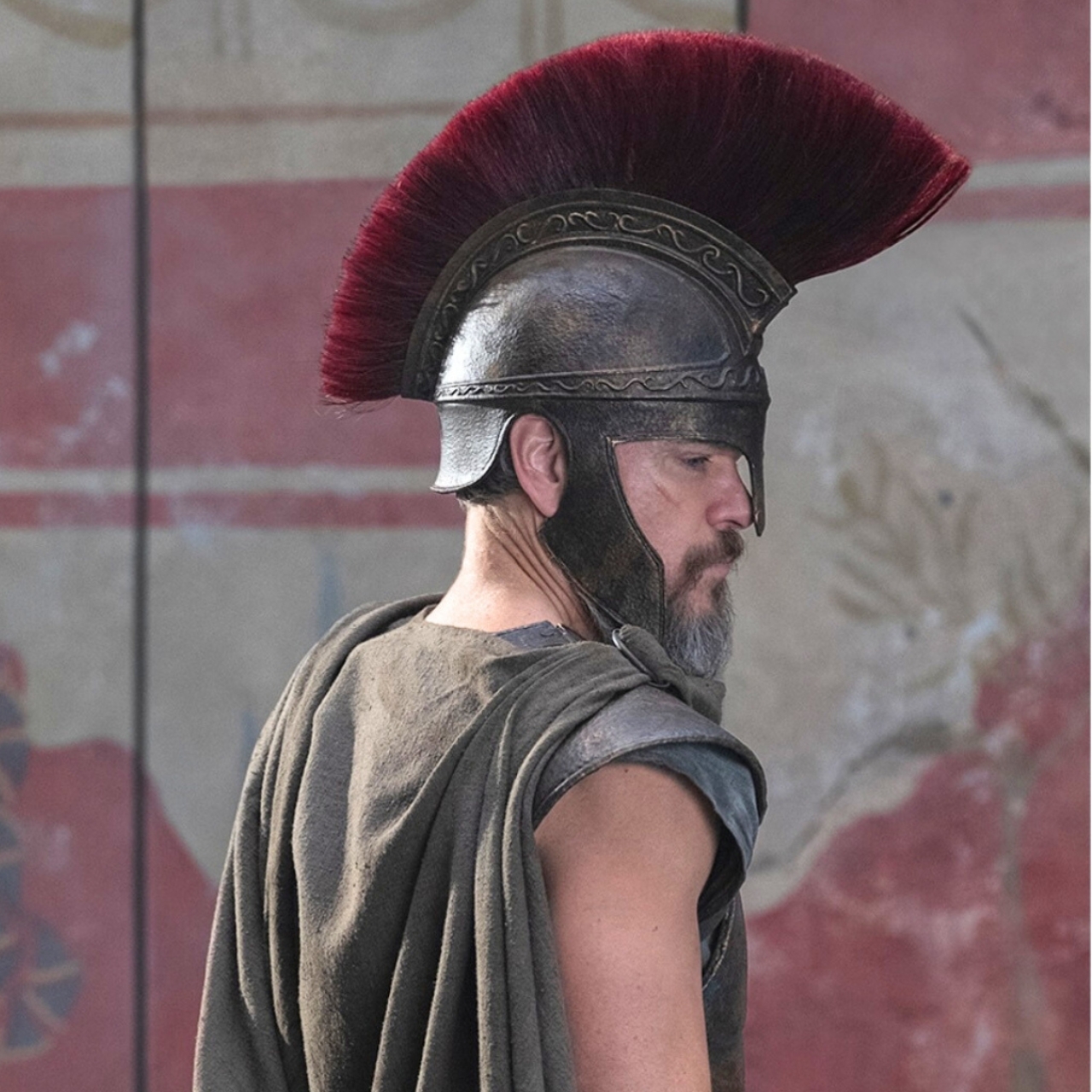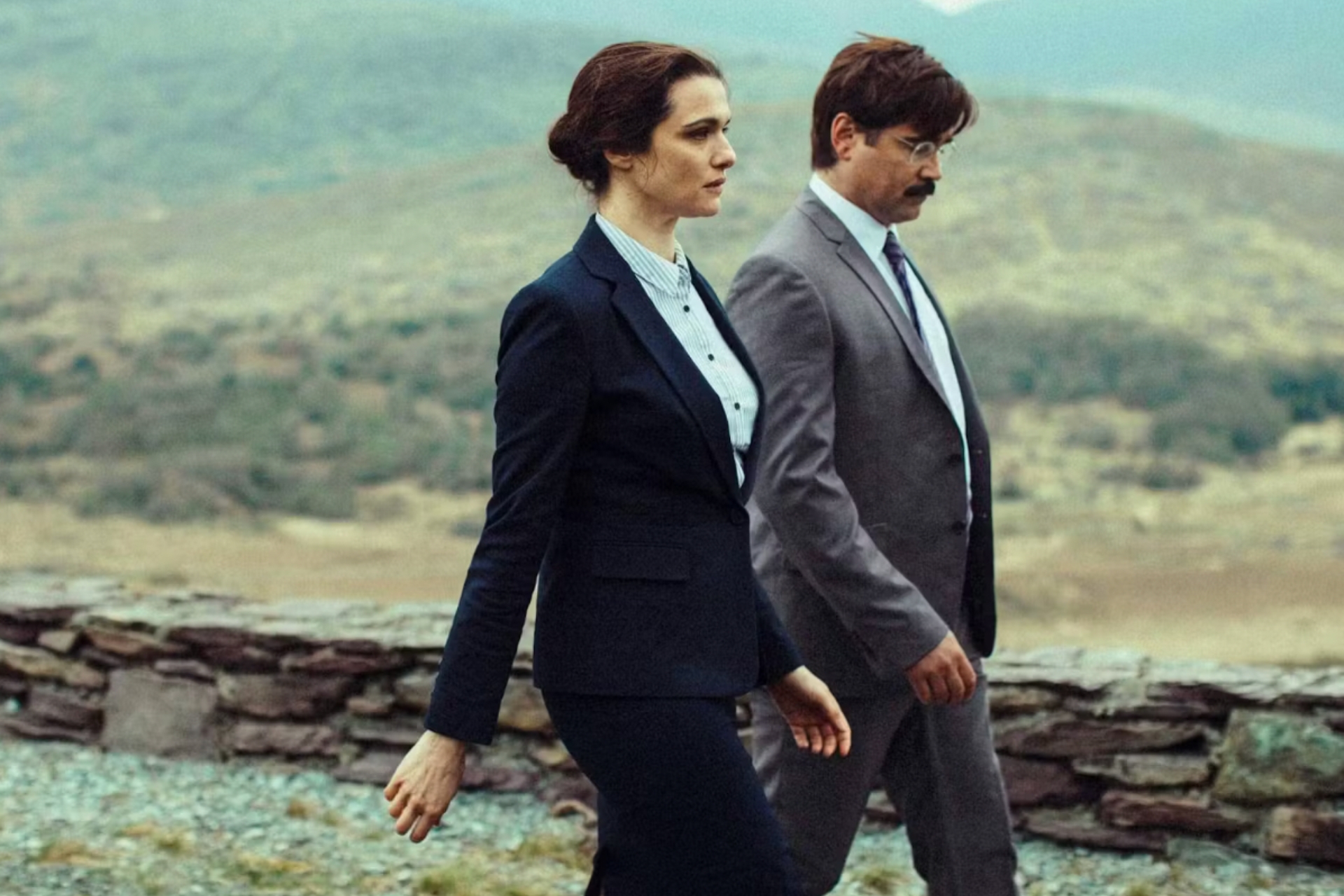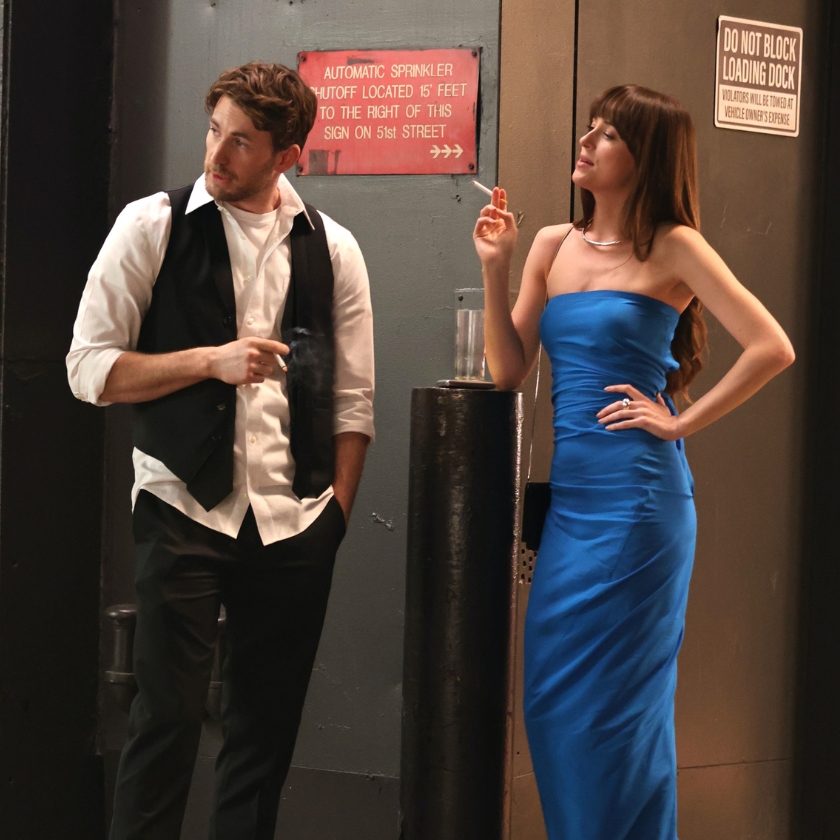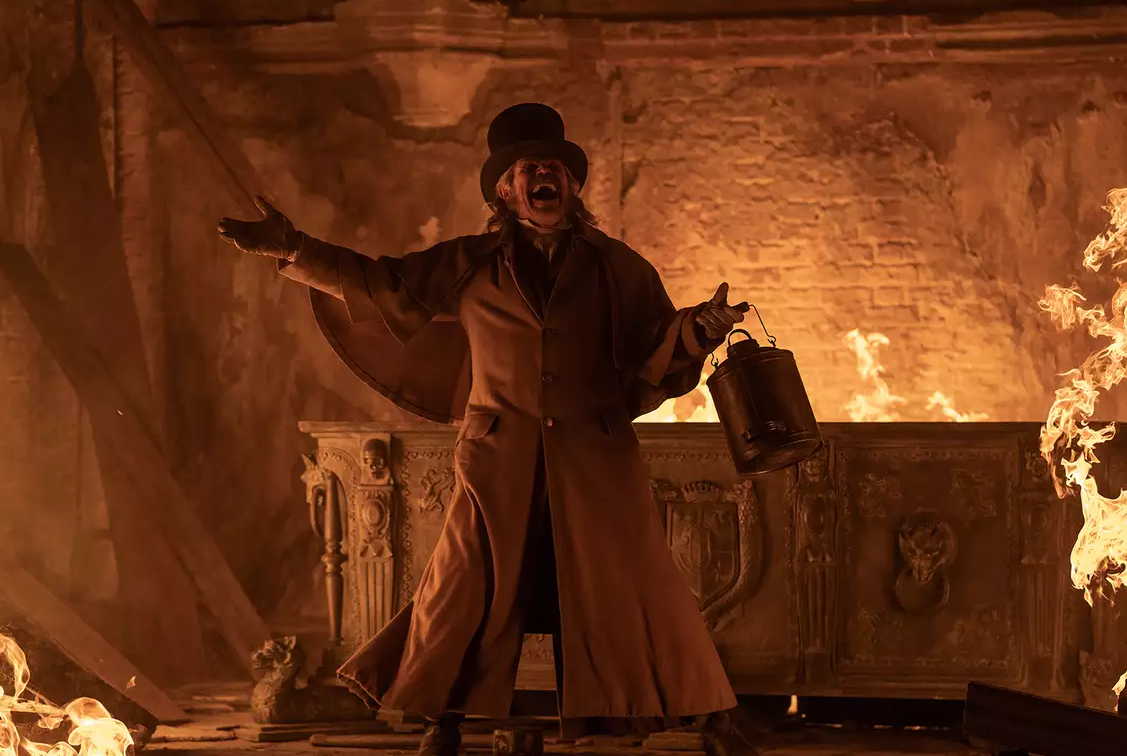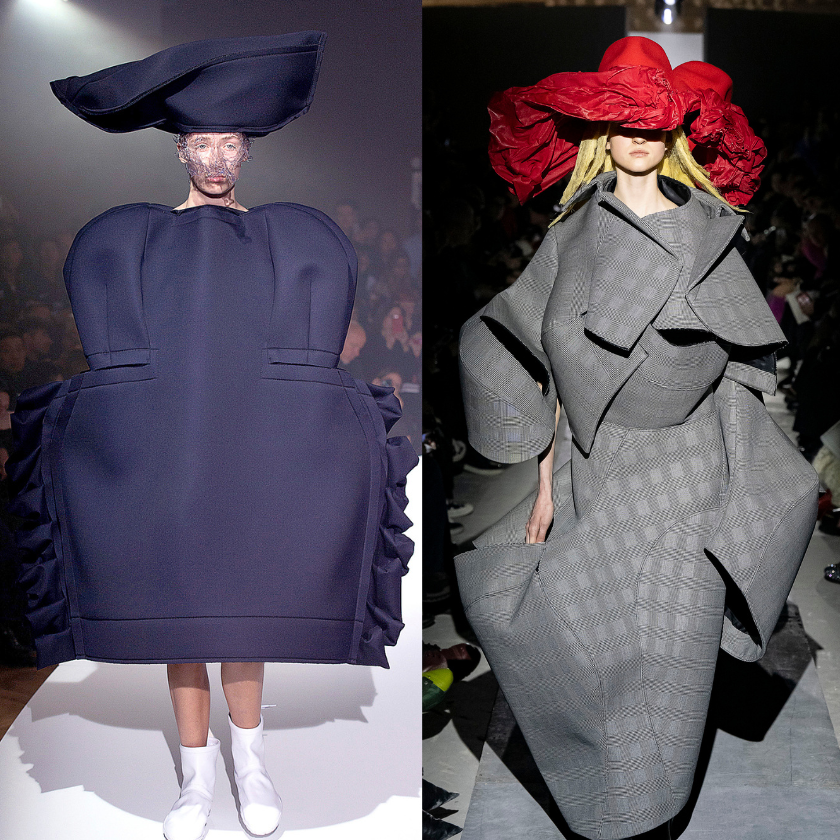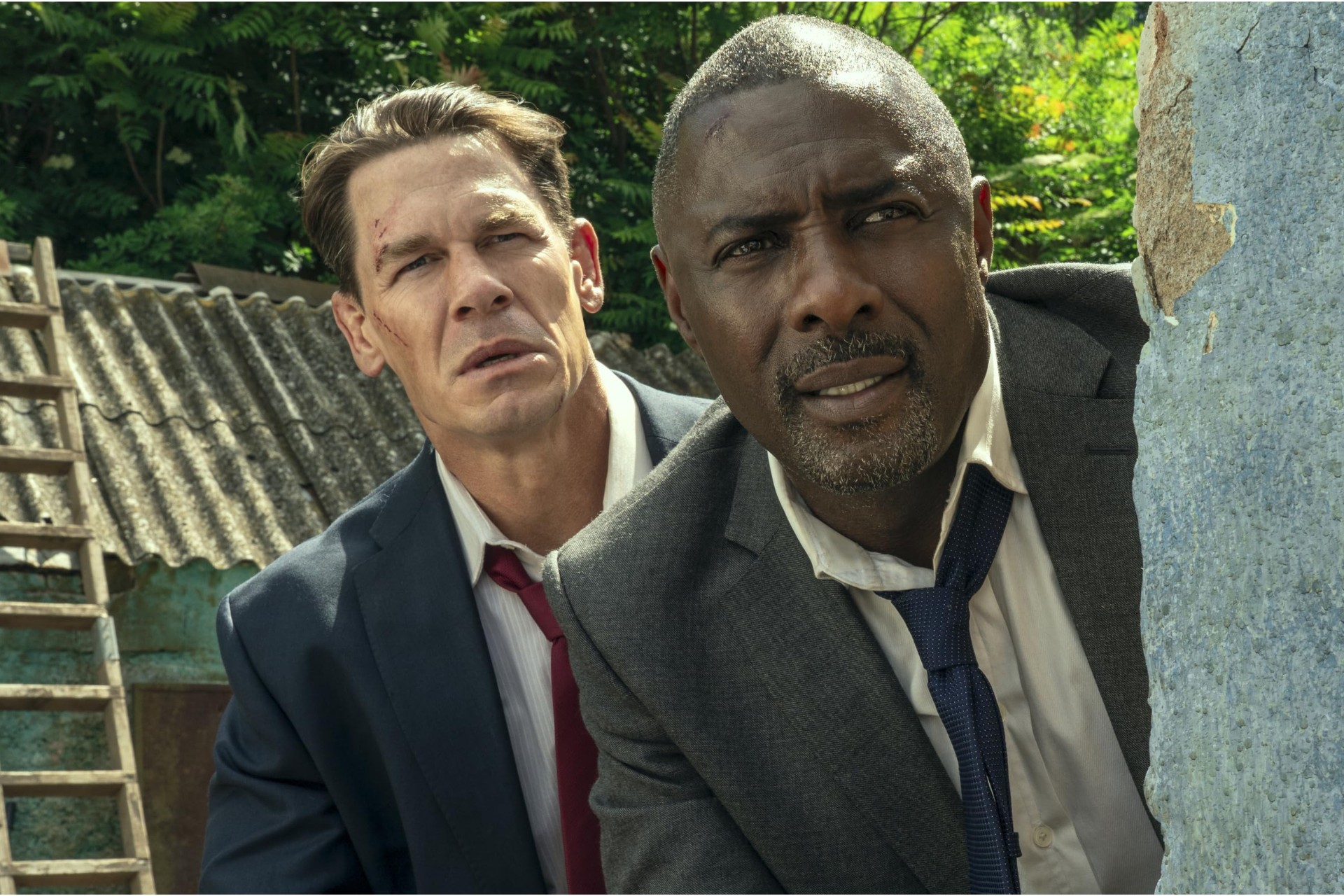‘Challengers’ and the merits (or otherwise) of an ambiguous ending
The raunchy tennis love match is lighting up the global box office, but its very feverish, building-to-a-climax ending leaves a lot to the imagination. The question is, does a deliberately unclear movie denouement leave the viewer feeling cheated?
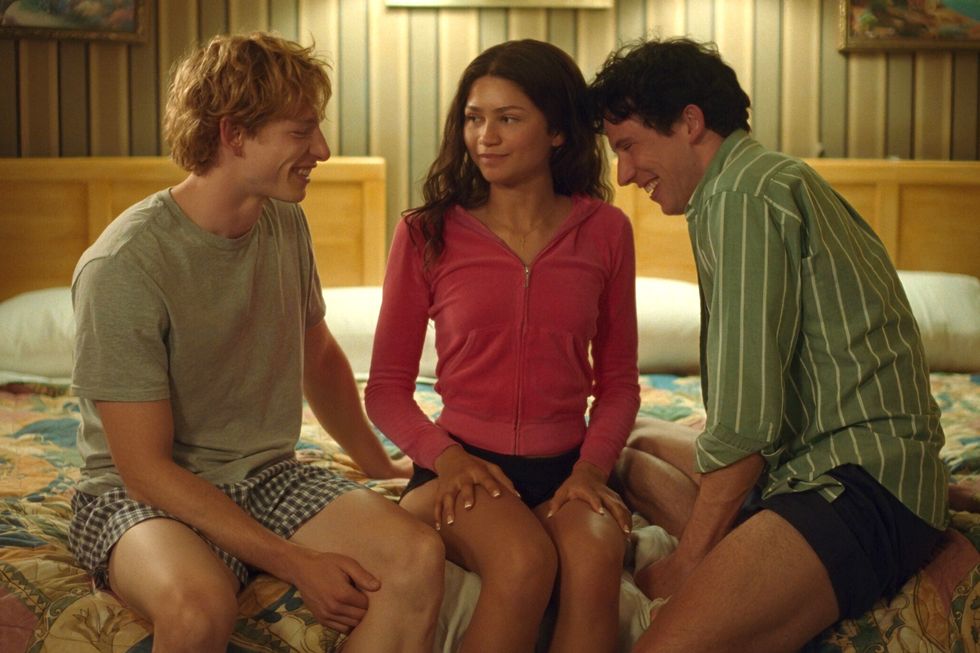
This story contains spoilers.
IF YOU HAVEN’T seen Challengers, the steamy new movie about a trio of top tennis players and the knotty relationships between them, know this: it’s a bit of a tease.
In the movie, Zendaya, who boasts a withering forehand and similarly volcanic temper, plays a rising young tennis prodigy named Tashi Duncan. She meets two other promising young players, Art (Mike Faist) and Patrick (Josh O’Connor). The film cuts back and forth between a present-day storyline in which Tashi and Art are married and she works as his coach. They’re preparing for a crucial match at a ‘challenger’ tournament against Patrick, who’s become a rather pathetic tennis-tour journeyman, hoping for one last shot at competing in a Grand Slam. In flashbacks, the three meet as teenagers and Tashi initially engages in a relationship with Patrick, until a significant injury derails her own playing career.
The film ends back in the challenger tournament final between Art and Patrick, where, as the match enters an impossibly tense tiebreaker, Patrick signals to Art that he and Tashi have recently slept together.
The pacing of the scenes in this decisive match is really something to behold, as the tension builds and builds, aided and abetted by a stupendous score by Trent Reznor and Atticus Ross. The stakes have been masterfully built by director Luca Guadagnino and the match is essentially an analogue for an orgasm, as you, the viewer, find yourself getting quite, well, worked up, desperate to see how it’s all going to end.
But here’s the thing – the movie does not, in fact, ‘get you off’, so to speak (forgive the crudeness but Challengers doesn’t deal in subtext; it’s a horny, campy, over-the-top romp from start to finish). Instead, the movie ends with the two players colliding at the net after a ferocious back-and-forth rally. They embrace and Tashi reacts, first with an anguished, guttural scream, echoing an outburst she made earlier in the film, before beginning to smile, just as the credits roll.

Now, as a thoroughly invested viewer, when Tashi smiled, I frowned. Was Tashi angry because the boys had thwarted her plans, I wondered? Did the smile indicate she was happy because she never truly loved either man and knew they made a better match than she did with either of them. Or did she recognise that a ménage à trois between the three was really the solution all along. So many questions?
Then I smiled too, recognising I’d been led up the garden path, got suckered into caring about the fate of these privileged playboys (and girl) and had been left hanging – essentially, I had the intellectual equivalent of blue balls.
The ambiguous ending is popular among screenwriters and directors for a few reasons. Firstly, it positions them as omnipotent puppet masters, a terrific feeling for a director with a God complex. And, intellectually, at least, posing questions is regarded as a superior endeavour to offering neat solutions, otherwise known as corny endings. Leaving questions unanswered also creates debate, something Zendaya herself recently engaged in with her mother, who, she said, “read the [movie’s] ending so different”.
“My mum is like, ‘She [Tashi]’s pissed because they realise that they don’t need her anymore’. I was like, ‘But I smile a little bit at the end!’ I was like, ‘What? I don’t know where you got that from. I’m in the movie and I feel like I have a good sense of what I thought this ending was supposed to be, and she was like, ‘No. This is what it is. So sorry’.”
For what it’s worth, Guadagnino is pleased with his ending. “Isn’t it so beautiful that we have an open ending that people like?” he told the The New York Times. “Because everybody says, ‘No. Never open ending. You have to know what happens at the end’.”
Guadagnino’s probably right, though he’s not the one suffering psychic blue balls as he leaves the cinema. But, to be fair to the director, an ambiguous ending does create fodder for passionate post-movie dissections among friends or trading double-handed metaphorical forehands with anonymous combatants online.
Normally I’m a fan of an ambiguous ending – I hold a special place in my heart for the ending of seminal Aussie crime dramedy Mr Inbetween when, (another spoiler!) laconic hitman, Ray Shoesmith, smiles at the camera as two thugs prepare to do him over in his taxi. You wonder if Ray is going to take out the thugs or finally meet his maker. As a viewer, you don’t want Ray to die and this way he doesn’t, as you, the viewer, are free to imagine him expertly disposing of these unworthy low lifes; like they were ever going to get the jump on Ray, not happening!
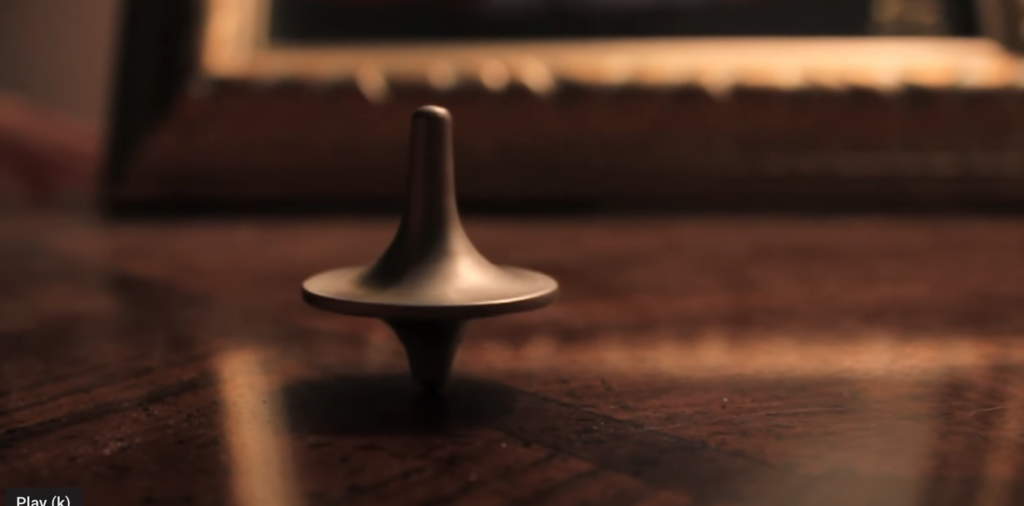
Christopher Nolan’s Inception, where Leo spins the top and the film cuts to the credits, just as there’s a hint of a wobble that would have indicated that he was dreaming, was similarly masterful. Everything over the preceding two-and-a-half hours has been leading up to that final shot.
But sometimes an ambiguous ending is maddening. The end of No Country for Old Men, for example, is effectively a non-ending, almost as if the Coens ran out of film stock.
Some would argue that a ‘clever’, keep-them-guessing ending is either vainglorious or, at the very least, self-conscious filmmaking, less the work of a master storyteller than it is a creative confidence trickster. At the same time, while there will be others who point out that life is filled with shades of grey and inherent ambiguity, sometimes it’s actually not. In our daily lives, there are pleasant outcomes, just as there are horrifying conclusions that have an emotional fallout. Not committing to an ending, by this argument, is a copout, for the director remains safely above the fray, not having to show their hand, take a side, or defend a creative decision.
So, where does that leave us? Well, as you may have noticed, I have been carefully attempting to keep my hands clean, offering pros and cons both ways. So, sorry if you didn’t see this coming, or you think this is too meta by half, though it may just illustrate my point, or lack thereof, (picture me smugly smiling) but I’m going to finish this column like this . . .
Related:
The ‘I Told Ya’ shirt from Challengers is about to be huge
Baby Reindeer and the complications of mining personal experience for emotional truths












